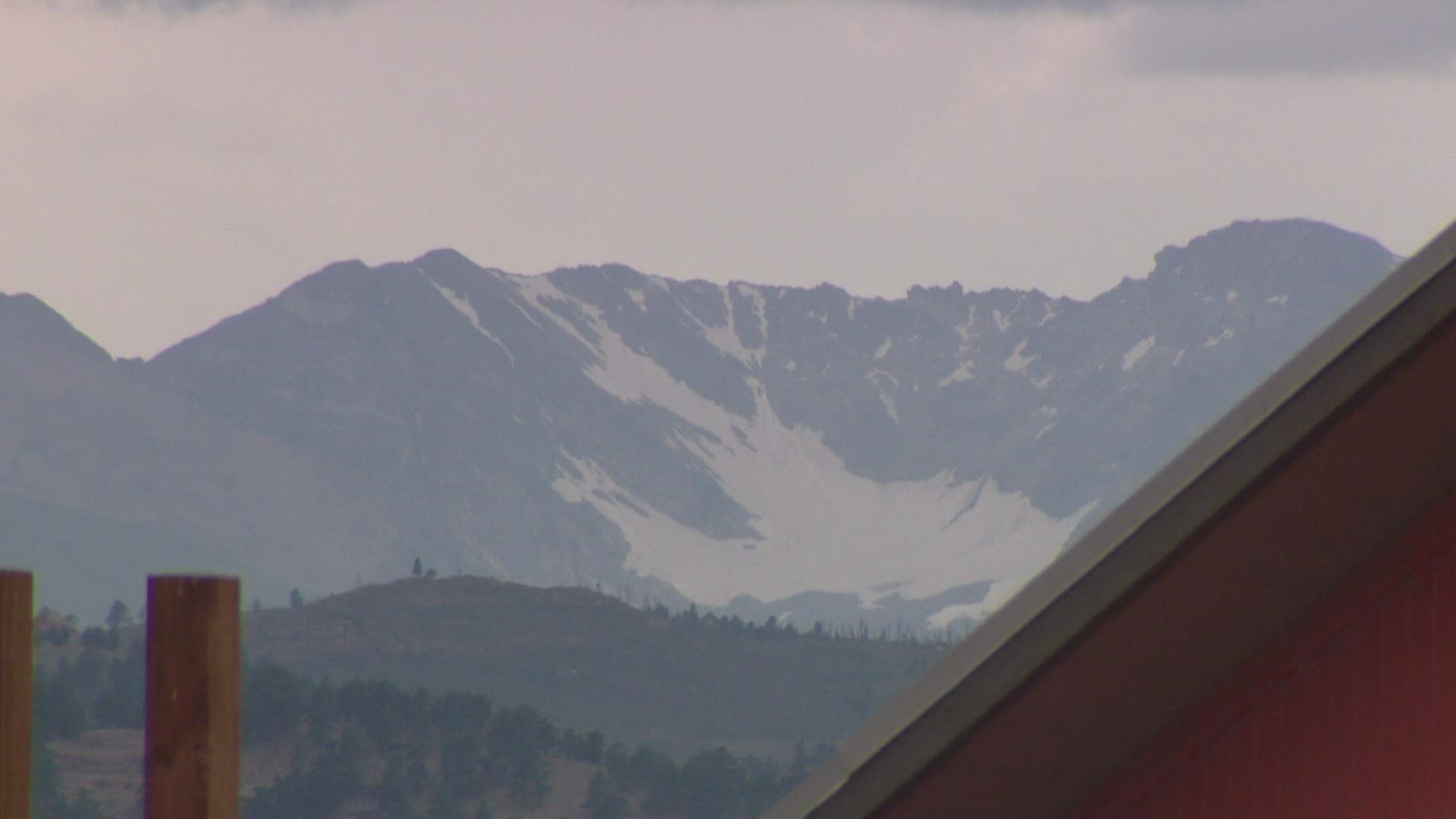BOULDER COUNTY, Colo. — Poor air quality and ozone alert days are common along the Front Range.
Boulder County, Longmont, Broomfield and Erie said they are doing research that shows local oil and gas sources are contributing to dangerous ozone levels in the region.
"It's a big part of my life," said Collin Tomb, climate and health specialist for Boulder County. "It's something I have to think about the way you think about taking your medication in the morning."
Checking ozone levels and air quality are critical parts of Tomb's day.
"It's actually quite scary to have chest pain together with asthma," she said. "It can be a dangerous condition. It is a painful condition."
Tomb has asthma and recurrent pericarditis, a condition where she experiences inflammation around her heart. Poor air quality and high ozone levels exacerbate her symptoms and make it nearly impossible to exercise outside during the summer, unless it's early in the morning.
“If we have this problem now and we’re having 70 days of high ozone in the summer, what is it going to be like for our kids?" Tomb said.
She said it's unjust that some people do not have the choice to avoid high ozone levels or poor air quality.
“The exposure to these pollutants are correlated with poor health outcomes in any population, but they do disproportionately impact folks who have lower incomes, live in marginalized areas, folks of color. It’s just really kind of mind-blowing the level of injustice that air pollution can represent," Tomb said. “There are people who work outside professionally, and I think about them all the time.”
Boulder County said research conducted by them, as well as Longmont, Broomfield and Erie, shows local oil and gas sources continue to contribute to dangerous ozone levels in the Denver metro and Front Range region.
Population growth and more vehicle emissions are also adding to the problem.
To collect some of the data, Boulder County uses an air quality monitor at Boulder Reservoir.
"When the winds are coming from the northeast, to that station [air quality monitor], that's when we see elevated levels of the pollutants," said Cindy Copeland, air and climate policy advisor for Boulder County. "They call them oil and gas tracer pollutants, like ethane, which isn't a toxic pollutant in itself, but it's a pollutant that is prevalent with oil and gas, and there aren't many other sources of ethane."
"So ozone, they say it's like a sunburn to your lungs," she said. "Over time, that can cause immediate problems and long-term respiratory problems."
Thursday, she presented the county's research to Colorado's Air Quality Control Commission in the hopes of urging them to consider stricter measures to reduce emissions.
Copeland said they suggest using reformulated gas that has lower volatility and therefore less emissions. She said according to the Environmental Protection Agency, the area is already considered to be in nonattainment, which is an area that does not meet, or violates, air quality standards.
"We're about to be moved up to 'severe nonattainment' because of our continued problem with ozone," Copeland said. "Then with that, there'll be a number of actions that the state has to automatically take."
Those actions include mandating the use of reformulated gas for cars. She said this likely wouldn't happen until 2024, so they're urging the Air Quality Control Commission to take action now. She also wants to see more oversight and controls over emissions coming from the oil and gas industry.
"When we look at these regulations, often, they're weighed against the cost to industry," Copeland said. "But we really need to look at the health impacts and the climate impacts."
Boulder County started their research in 2017. Longmont and Broomfield followed quickly with their own studies. Erie just started their air quality and ozone research last year.
RELATED: Summer wildfires in Pacific Northwest affecting Colorado's carbon monoxide levels, scientists say
SUGGESTED VIDEOS: Colorado Climate

